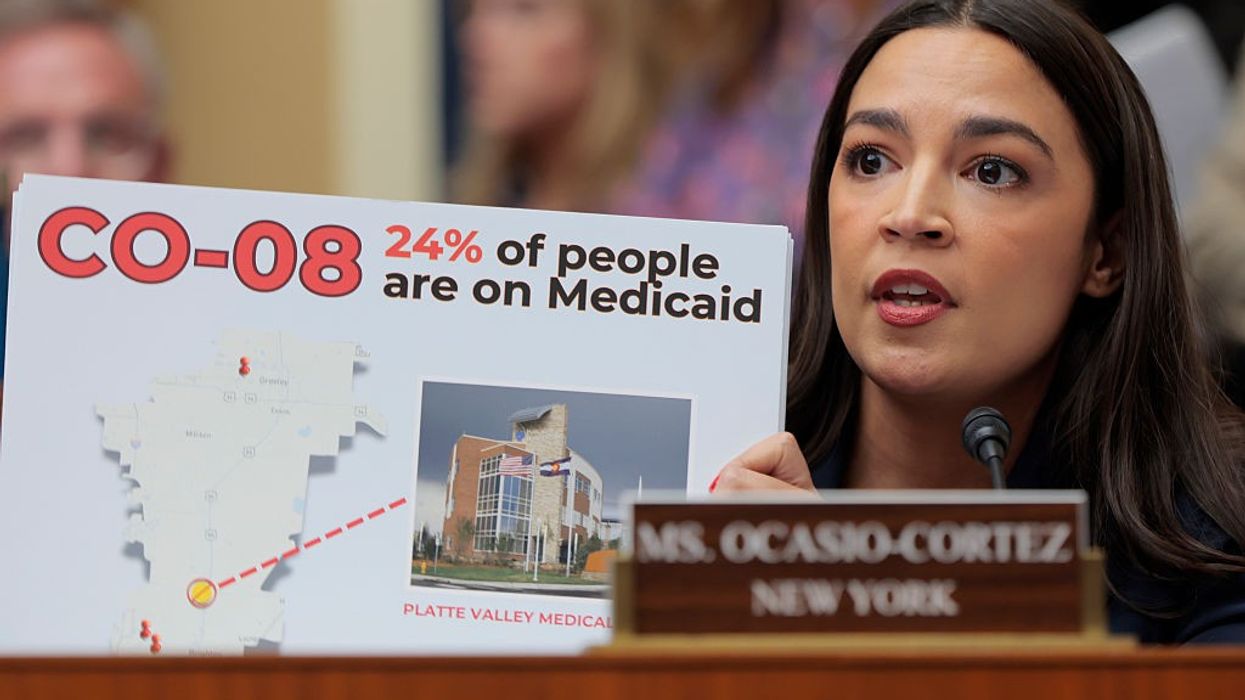March, 01 2011, 09:38am EDT
For Immediate Release
Contact:
Alicia Pierro, Outreach & Advocacy Officer, USCBL, Phone: +1 (347) 623-2779,
E-mail: apierro@handicap‑international.us
Zach Hudson, Coordinator, USCBL, Phone: +1 (917) 860-1883,
E-mail: zhudson@handicap‑international.us
Twelfth Anniversary of the Mine Ban Treaty: The U.S. Should Join Now
WASHINGTON
As the Mine Ban Treaty celebrates its twelfth anniversary today, March 1, the United States should decide to join the treaty without delay and ban antipersonnel landmines forever, theUnited States Campaign to Ban Landmines (USCBL) said.
The Obama administration initiated a comprehensive interagency review of its landmine policy in late 2009. "U.S. citizens and other campaigners from around the world have been calling on the U.S. to join the Mine Ban Treaty since it was negotiated in 1997," said Zach Hudson, USCBL Coordinator. "Since the policy review began this outcry has only intensified. The administration has received letters of support for the Mine Ban Treaty from 68 Senators, NGO leaders, key NATO allies, 16 Nobel Peace Prize laureates, victims of U.S. landmines, and countless concerned Americans. Enough is enough--it's time to join."
By joining the treaty, the U.S. would help send a clear signal that all types of antipersonnel mines are unacceptable weapons and would ensure that these weapons are never used again by the U.S. or anyone else. Joining would also encourage other remaining outliers to accede and strengthen international security.
It should not be difficult for the U.S. to join the Mine Ban Treaty, as it is already in compliance with the majority of the convention's provisions: the U.S. has not used antipersonnel landmines since 1991, has not exported any since 1992, and has not produced any since 1997. The U.S. is also the world's largest individual donor to mine clearance and victim assistance programs.
Additionally, at the beginning of 2011, the U.S. discontinued all use of so-called "dumb" mines or "persistent" mines everywhere in the world, including on the Korean peninsula. However, this fulfillment of a 2004 Bush-era policy still allows the military to use so-called "smart" mines equipped with a self-destruct or self-deactivation mechanism--weapons that the USCBL and the international community still condemn.
"Smart mines are not safe mines," said Hudson. "While these mines are active, they cannot distinguish between a soldier and an innocent civilian, and a large number will fail to self-destruct, posing dangers to civilians and requiring costly demining programs. By retaining the right to use them, the U.S. stands completely at odds with the international norm that rejects all use of antipersonnel mines."
As part of the Mine Ban Treaty anniversary celebrations, during the month of March campaigners from the Nobel Peace Prize recipient International Campaign to Ban Landmines (ICBL) will be meeting with U.S. government officials at U.S. embassies around the world to urge the U.S. to join the Mine Ban Treaty.
The USCBL will also be launching its new student campaign, as well as co-hosting an event at Georgetown University on Tuesday, March 1 which will include a reception, panel discussion and book signing featuring Jody Williams, Nobel Peace Laureate (1997); Ken Rutherford, Director of the Center for International Stabilization and Recovery, James Madison University; and Steve Goose, chair of the ICBL and Executive Director of the Arms Division at Human Rights Watch. The event is open to the public; details and the RSVP form can be found at www.uscbl.org.
The United States Campaign to Ban Landmines is a coalition of non-governmental organizations working to ensure that the U.S. comprehensively prohibits antipersonnel mines--by banning their use in Korea--and joins the 1997 Mine Ban Treaty, as more than 160 nations have done. It is the national affiliate of the International Campaign to Ban Landmines (ICBL), founded in New York in 1992 and recipient of the 1997 Nobel Peace Prize Laureate together with former ICBL coordinator Ms. Jody Williams of Vermont. We also call for sustained U.S. government financial support for mine clearance and victim assistance.
LATEST NEWS
63% of US Voters Oppose Attack on Venezuela as Trump's March to War Accelerates
The new poll comes as the US president openly plots to seize Venezuela’s oil supply.
Dec 18, 2025
President Donald Trump has taken increasingly aggressive actions against Venezuela in recent weeks, but a new poll released Wednesday shows US voters are not on board with a new war.
A new poll from Quinnipiac University found that 63% of voters oppose military operations inside Venezuela, with just 25% registering support.
What's more, a US military strike in Venezuela would draw significant opposition even from Republican voters, 33% of whom told Quinnipiac that they would oppose such an action. Eighty-nine percent of Democratic voters and 68% of independent voters said they were opposed to a US military campaign in Venezuela.
Trump's policy of bombing suspected drug trafficking boats in international waters, which many legal experts consider to be acts of murder, drew significantly less opposition in the new survey than a prospective attack on Venezuela, but it is still unpopular, with 42% in favor and 53% opposed.
A potential war is also unpopular with Venezuelans, as a recent survey from Caracas-based pollster Datanalisis found 55% opposed to a foreign military attack on their nation, with 23% in favor.
The Trump administration's boat strikes, which have now killed at least 99 people, have been just one aspect of its campaign of military aggression against Venezuela. The US military last week seized a Venezuelan oil tanker, and Trump has said that it's only a matter of time before the military launches strikes against targets inside the country.
Trump on Wednesday also said that one goal of his campaign against Venezuela would be to seize the country's oil supply.
“Getting land, oil rights, whatever we had—they took it away because we had a president that maybe wasn’t watching,” Trump said while talking to reporters. “But they’re not gonna do that. We want it back. They took our oil rights. We had a lot of oil there. They threw our companies out. And we want it back."
Venezuela first nationalized its oil industry in 1976, and the US has no legitimate claim to the nation's petroleum supply.
Keep ReadingShow Less
AOC Dismisses Premature 2028 Polls, But Says ‘I Would Stomp’ JD Vance
A survey this week showed the congresswoman leading the vice president 51-49 in a hypothetical presidential matchup.
Dec 18, 2025
Rep. Alexandria Ocasio-Cortez gave a cheeky reaction after a poll suggested that she'd slightly edge out Vice President JD Vance in a hypothetical presidential election in 2028.
The survey of over 1,500 registered voters, published Wednesday by The Argument/Verasight, showed Ocasio-Cortez (D-NY) leading Vance 51-49 and winning back several key voting demographics that propelled Trump's return to the White House last year.
As she walked out of the Capitol building Wednesday evening, the Bronx congresswoman was asked about the poll by Pablo Manríquez, the editor of Migrant Insider.
She responded to the question with a laugh: "These polls three years out, they are what they are. But, let the record show I would stomp him! I would stomp him!" she said before getting into her car.
Neither Ocasio-Cortez nor Vance has officially announced a presidential run. But Vance is considered by many to be a natural successor to President Donald Trump. The president and his allies have suggested he could run for an unconstitutional third term.
Ocasio-Cortez, meanwhile, is reportedly mulling either a presidential run or a bid to take down the increasingly unpopular Senate Minority Leader Chuck Schumer (D-NY).
More than two years out from a Democratic primary, Ocasio-Cortez is considered a likely choice to fill the progressive lane in 2028, with support for increasingly popular, affordability-focused policies, including Medicare for All.
However, despite her strong support among young voters, early polls show her behind California Gov. Gavin Newsom and former Vice President Kamala Harris for the Democratic nomination.
Wednesday's poll showed that in a hypothetical contest against Vance, Newsom had a 53% to 47% edge, a margin only slightly larger than Ocasio-Cortez's.
Keep ReadingShow Less
4 More Killed in Pacific Boat Strike as White House Ramps Up Demands for Venezuelan Oil
President Donald Trump “wants to keep on blowing boats up until Venezuelan President Nicolás Maduro cries uncle," said White House Chief of Staff Susie Wiles in a recent interview.
Dec 18, 2025
Hours after US House Republicans voted down a war powers resolution Wednesday aimed stopping the Trump administration from continuing its attacks on "presidentially designated" terrorist organizations, the death toll of the Pentagon's continued boat strikes was brought to 99 with the latest bombing in the Pacific Ocean.
US Southern Command reported Wednesday night that at the direction of Secretary of Defense Pete Hegseth, the military had killed four people in a "kinetic strike on a vessel operated by a Designated Terrorist Organization in international waters."
As with the rest of the more than two dozen bombings that the administration has carried out in the Caribbean and Pacific since September, the Pentagon said that intelligence had confirmed the boat was "engaged in narco-trafficking operations."
The White House has not released evidence that the boats it's targeted were carrying drugs. In the past, the US military has been involved in intercepting vessels suspected of drug trafficking and charging passengers with a criminal offense, but President Donald Trump has insisted the US is engaged in an armed conflict with drug cartels in the Western Hemisphere, including in Venezuela.
US and international intelligence agencies have not found Venezuela to be a significant source of drugs flowing into the US and have found the country to play virtually no role in the trafficking of fentanyl, the biggest cause of drug overdoses in the US.
The latest boat bombing came a day after Trump announced a "total and complete blockade" on oil tankers approaching and leaving Venezuela, accusing the country of stealing "Oil, Land, and other Assets" from the US.
Venezuela nationalized its petroleum sector in 1976, taking control of its own vast oil reserves. Previously, US-based companies had largely controlled the country's oil industry. In 2007, then-President Hugo Chavez further pushed out US oil giants such as Exxon Mobil when he nationalized foreign oil projects in Venezuela.
Stephen Miller, a top adviser to Trump, accused Venezuela's government of "theft" on Wednesday.
“American sweat, ingenuity, and toil created the oil industry in Venezuela,” Miller said in a social media post. “Its tyrannical expropriation was the largest recorded theft of American wealth and property. These pillaged assets were then used to fund terrorism and flood our streets with killers, mercenaries, and drugs.”
Regarding the blockade, Trump also said Wednesday that Venezuela "illegally took" US energy rights.
While the administration has insisted for months that its deadly boat strikes are aimed at stopping drug trafficking, comments from White House Chief of Staff Susie Wiles in an extensive Vanity Fair interview released Tuesday further confirmed that the White House aims to take control of the South American country.
Trump “wants to keep on blowing boats up until Venezuelan President Nicolás Maduro cries uncle," said Wiles.
Brian Finucane, senior adviser at the International Crisis Group, said Wednesday night's boat strike amounted to "more premeditated killing outside of armed conflict."
"There's a word for that," he said.
Legal experts have said the repeated, lethal bombings of boats have been part of a campaign of extrajudicial killings and have warned Hegseth and others involved in the attacks could be liable for murder.
Keep ReadingShow Less
Most Popular


